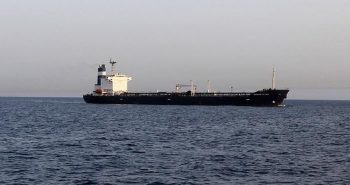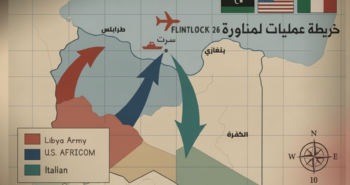Emadeddin Badi

Every crisis has a rhythm. Libya’s has moved from a low thrum of dysfunction to the pounding urgency of collapse.
What once appeared as a fragile equilibrium held together by fragile oil revenues, a delicate foreign balance, and conflict fatigue is now clearly in disrepair. The fiscal figures are no longer deniable. The consequences are no longer distant. And the illusion of economic stability has ruptured.
For months, economists and analysts warned of this trajectory. Their forecasts were not based on abstract models but on daily observations: rising inflation, widening budget shortfalls, and the quiet disappearance of public oversight.
The Central Bank of Libya (CBL), long reticent, has now joined that chorus with a rare and public statement. Its warnings are stark:
In 2024, the Government of National Unity spent over 109 billion Libyan dinars (LYD), while the parallel government in the east accrued more than forty-nine billion in off-budget obligations. Neither figure reflects coordination or restraint—just the actions of officials either ignorant of or indifferent to the consequences of unchecked spending.
Both ledgers lay bare the scale of state capture and fiscal chaos. Alongside these warnings, the CBL also amended the official exchange rate, raising it to 5.48 LYD to the dollar while retaining its fifteen percent surcharge on foreign currency purchases.
Framed as a technical adjustment, the move is a stopgap—an attempt to accommodate political excess within a shrinking monetary space. It underscores a deeper truth: Libya’s financial institutions are no longer guiding the economy. They are bracing against its unraveling.
Superficially, Libya still functions. Oil, at least in practice, is still exported. Salaries, though often late, are eventually deposited in the accounts of the country’s bloated public-sector employees. But beneath the surface, the economy is disassembling.
The black-market exchange rate has climbed to 7.8 LYD to the dollar within forty-eight hours of the CBL’s decree, a warranted vote of no confidence in Libya’s fiscal and monetary custodians. Institutions that once stabilized the system—through budgetary checks, revenue cycle audits, regulated foreign exchange, or centralized oversight—have been hollowed out or deactivated.
What remains is an economy run on improvisation, backroom deals, and political convenience.
Looking back, the architecture of corruption has evolved in stages. First came the scramble for what Gaddafi had monopolized the allocation of: budget lines, salary schemes, and procurement deals. Later, transitional authorities waged fights over who wrote those allocations—to control the institutions and the budget pens.
Today, that logic has culminated in the complete distortion of the allocation process itself. Libya’s economic crisis is no longer just about who benefits. It is about how benefit is manufactured.
An innovative system of corruption
Over the past several years, opaque and improvised mechanisms have steadily replaced formal revenue channels. At first, these workarounds were viewed as a tolerable compromise—a necessary price for preserving a fragile calm and avoiding renewed conflict. But what was once seen as a temporary accommodation has metastasized into a full-blown system of economic governance, one in which accountability is absent and discretion is unchecked.
Crude-for-fuel barter deals, once framed as a pragmatic workaround, have become routine, sidestepping the national budget and brokered through opaque channels with no public oversight. They routinely bypass the national budget entirely and were often negotiated through informal brokers with transnational networks and no public scrutiny.
Though the National Oil Corporation (NOC) has pledged to end crude-for-fuel swaps by March 2025, these deals are already being eclipsed by more elaborate and opaque arrangements—the latest evolution in Libya’s system of innovative corruption.
One of the most illustrative examples is Arkenu, a Benghazi-based company originally established for geological research but now repurposed as a vehicle for shadow oil exports. According to the United Nations Panel of Experts, Arkenu is operated by actors aligned with Libyan National Army (LNA) Commander Khalifa Haftar and serves as a financial conduit for eastern military and political interests.
In 2024 alone, Arkenu independently exported approximately $460 million worth of crude oil under a GNU-approved deal, absent any transparent bidding, auditing, or publication of terms. As of 2025, it remains active—continuing to lift crude monthly from the National Oil Corporation—and sits at the center of an emerging system in which state-linked assets are repurposed to fund political actors outside formal channels.
***
Emadeddin Badi is a nonresident senior fellow with the Middle East Programs at the Atlantic Council where he advises on US and European policies toward North Africa and the Sahel, focusing on Libya’s conflict.
________________________





